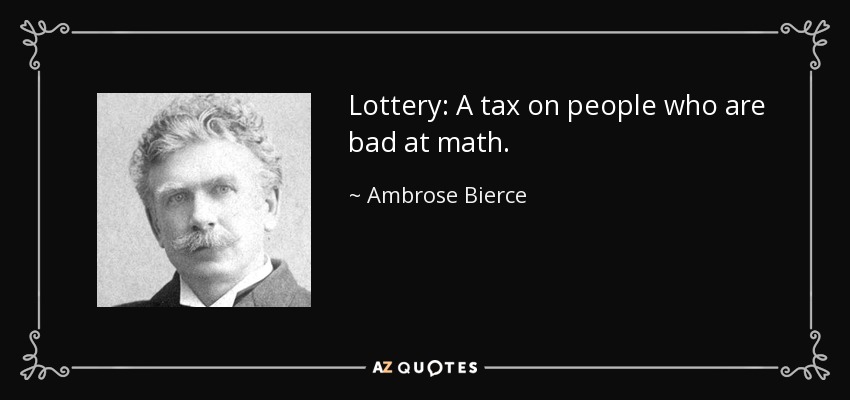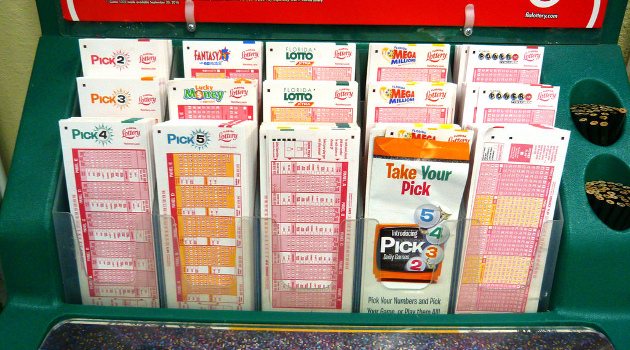Like any sensible person, I want victimless crimes to be legalized. In part because I believe in freedom, but also for utilitarian reasons.
- I don’t approve of drugs and I’ve never used drugs, but I think the social harm of prohibition is greater than the social harm of legalization.
- I don’t particularly like alcohol and I am almost a teetotaler, but I’m glad there’s now a consensus that the social harm of prohibition was greater than the social harm of legalization.
- I don’t approve of prostitution and I’ve never consorted with a prostitute (other than the political ones in DC), but I think the social harm of prohibition is greater than the social harm of legalization.
So it won’t surprise you to learn that I want gambling to be legal because the social harm of prohibition is greater than the social harm of legalization.
But that definitely doesn’t mean I want government to be in charge, which is why I’m not a fan of state-sponsored lotteries.
Joe Setyon, in a column for Reason, points out that politicians are the only group that actually benefits from these schemes.
At some point in the near future, the record-high Mega Millions jackpot is going to make someone very, very rich. But as is usually the case when it comes to the lottery, the biggest winner will be the government. …there are a few things us suckers need to keep in mind about the lotto.
First, the majority of lottery revenue goes back to the government. In 2015, The Atlantic estimated that 40 percent of all lottery ticket sales are allocated to state governments. …Meanwhile, some states that allow lotteries crush their competition with strict gambling regulations. In Texas, for instance, most forms of gambling are illegal. This means the government has a near-monopoly. The double standard for public and private gambling operations is obvious. Ultimately, the lottery system is a kind of regressive tax on low-income earners. “If the promised return is by far illusory—and it is—it would be hard to argue that those purchases do not constitute a tax on those who believe the state’s hype,” Fiscal Policy Institute research associate Brent Kramer wrote in 2010.
And here’s an article from CNBC that reveals the unpalatable tax consequences for the “lucky” people who happen to win a big prize.
…there’s at least one guaranteed recipient of a chunk of the loot — the IRS. …If you happen to beat the astronomical odds and hit all winning numbers in either game, be aware that the taxation of your prize starts before even reaching you. Whether you take your haul as a lump sum or as an annuity spread out over three decades,
your win is reduced by a 24 percent federal tax withholding… The immediate cash option for Mega Millions is $904 million. The federal withholding would reduce that by $217 million. For the $354.3 million Powerball lump sum, it would mean $85 million getting shaved off the top. …However, that’s just the start of what you’d owe. The top income tax rate for individuals is 37 percent… That rate applies to adjusted gross income of $500,000 or more. In other words, hitting either jackpot would mean facing that top rate. …On top of the federal withholding, you’ll owe state taxes on the money unless you live where lottery wins are untaxed. …Translation: You might pay north of 45 percent altogether in taxes, depending on where you purchased the ticket and where you live.
In other words, the government pillages people when they buy tickets.
And then the government pillages the tiny fraction of people who actually win something.
the tiny fraction of people who actually win something.
As I wrote above, the only real winners are politicians.
The biggest losers, by the way, are poor people.
Arthur Brooks of the American Enterprise Institute summed up this sad state of affairs in a column for the Wall Street Journal.
Powerball—the lottery shared by 44 states, the District of Columbia and two territories—is just one of the sweepstakes run by 47 jurisdictions in the U.S. These games produce nearly $70 billion a year in government revenue and enjoy profits of about 33%—much higher than margins in the private gambling industry.
Who are these lotteries’ most loyal customers? Poor people. …the poorest third of Americans buy more than half of all lotto tickets… Scholars have dug up evidence that states intentionally direct such ads at vulnerable citizens. A marketing plan for Ohio’s lottery some years back recommended scheduling campaigns to coincide with the distribution of “government benefits, payroll and Social Security payments.” …the average return from $1 spent on lottery tickets is 52 cents… After a state introduces the lotto, the bottom third of households shift about 3% of their food expenditures and 7% of their mortgage payments, rent and other bills. Effectively, the lottery works like a regressive tax. …Is there any set of policies more contradictory than pushing lotto tickets on poor people, and then signing them up for welfare programs that make them financially dependent on the government?
Here’s some additional analysis from the Wall Street Journal, this time from Holman Jenkins.
Gambling is what economists call an “inferior good”—demand is higher among those at the lower end of the income scale. As economist Sam Papenfuss argued in a 1998 paper, state-sponsored gambling became popular
as a way for high-income taxpayers to recoup some of the money spent on programs for the poor. State-sponsored gambling in the form of lotteries (now in 44 states) arrived on the same antitax wave that gave us property-tax caps and other antitax measures in the 1970s and ’80s. It should not surprise anyone that Democrats, as big supporters of the welfare state, have been the biggest supporters (though by no means exclusively so) of gambling as a way to finance it.
Last but not least, here are excerpts from a column I wrote for the Washington Times more than 20 years ago.
…government-run lotteries represent bad public policy. The No. 1 objection is that they lead to more government spending. …Perhaps even more disturbing, government lotteries victimize the poor. More than any other group, lower-income residents are the ones who play the lottery,
often shelling out hundreds of dollars each year in the hope of striking it rich. Yet these are precisely the people who should avoid lotteries. As an investment, lotteries are lousy, paying out only about half of what they take in. …why should state governments be running lotteries? If nothing else, lotteries show how much better consumers are treated by the free market system. Private gambling operations pay out about 90 cents for every dollar wagered (even higher for games such as blackjack), a far better deal than the miserly return provided by government-run lotteries. …This analysis applies to illegal gambling as well. Bookies traditionally allow customers to bet against the point spread for sporting events, and they make their money by applying a 10 percent charge on the money wagered by those who make losing bets.
Two decades later and I wouldn’t change a single thing I wrote.
I don’t like when politicians mistreat rich people, but I get far more upset when they do things that impose disproportionate costs on poor people. This is one of the reasons I don’t like government flood insurance, Social Security, the Export-Import Bank, the mortgage interest deduction, or the National Endowment for the Arts.
And lotteries definitely belong on that list as well.
I’m not a paternalist. I support legal gambling and I don’t want to prohibit poor people from making (what I think) are misguided decisions.
But at least leave the gambling to the private sector so poor people will get back, on average, 90 cents of every dollar they bet.

